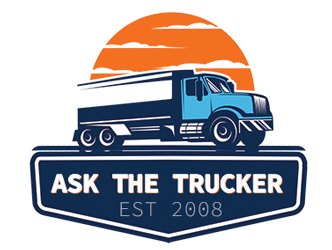Texas Commercial Truck Insurance Requirements
Essential Truck Insurance Coverage for Lone Star State Drivers
Trucking insurance is an essential aspect of operating a commercial trucking business in Texas. With the state’s vast transportation industry, truck owners and operators need to secure insurance coverage to protect their assets and comply with regulatory requirements. Comprehensive trucking insurance policies account for various liabilities, cargo protection, and vehicle damages, ensuring the financial stability of businesses in the face of unpredictable events.
In Texas, commercial truck insurance requirements vary depending on the nature of operations and the type and size of the vehicles involved. Various factors, such as driving history, location, and the radius of operation, influence premium rates. To minimize risks and maximize benefits, it’s crucial to select the appropriate coverage types and providers tailored to individual business needs.
Key Takeaways
- Trucking insurance in Texas covers liabilities, cargo, and vehicle damages.
- Compliance with state requirements entails securing the appropriate coverage.
- Premium rates depend on several factors, including driving history and the radius of operation.
Texas Insurance Requirements

In Texas, commercial truck insurance requirements vary depending on the type and weight of the vehicle. Trucks that weigh over 26,000 pounds and carry household goods are required by Texas state law to have a minimum of $500,000 worth of liability insurance. For trucks weighing less than 26,000 pounds, a minimum of $300,000 worth of liability insurance is required.
Trucks carrying household goods must also have a minimum of $5,000 coverage for loss or damage to a single shipper’s cargo and a minimum of $10,000 coverage for loss or damage to multiple shippers’ cargo. Additionally, motor carriers are required to provide workers’ compensation coverage for their employees or at least accidental insurance coverage.
It is essential for vehicles used to transport people for a fee, such as taxis, limousines, and non-emergency medical transportation (NEMT) vehicles, to be insured by a commercial auto policy. Some ridesharing vehicles may also require commercial coverage.
To operate a commercial truck in Texas, one must apply for a TxDMV Certificate, which might take additional review time if the carrier has had a previous authority/certificate or has been linked in any way with another authority/certificate.
It’s important to adhere to these insurance requirements, as failure to comply with the state’s regulations may result in penalties and legal consequences for both the driver and the trucking company.
Coverage Types
Primary Liability Coverage
Primary liability coverage is a fundamental requirement for commercial trucking in Texas. According to the state law, trucks weighing over 26,000 pounds and carrying household goods must have $500,000 worth of liability insurance. For trucks weighing less than 26,000 pounds, a minimum of $300,000 worth of liability insurance is required. This type of coverage protects against injuries to other people and damage to property if the truck driver is at fault for an accident. It may also pay for legal defense costs in case of a lawsuit.
Physical Damage Coverage
Physical damage coverage provides protection for the truck and its equipment in case of accidents, theft, vandalism, or other damages. This coverage typically consists of two parts:
- Collision coverage: Covers damages to the truck resulting from a collision with another vehicle or object.
- Comprehensive coverage: Pays for damages caused by incidents other than collisions, such as theft, vandalism, or natural disasters.
Physical damage coverage is essential for keeping commercial trucks roadworthy and ensuring that trucking businesses can continue operations even after unexpected incidents.
Cargo Coverage
Cargo coverage, also known as motor truck cargo insurance, protects the goods being transported by the truck in case of loss or damage. This coverage is crucial for trucking companies since it helps protect them from financial losses resulting from damaged or lost cargo. Cargo coverage policies might differ based on the types of goods being transported, and truck owners should choose a policy that best suits their specific cargo and transportation needs.
Non-Trucking Liability Coverage
Non-trucking liability coverage, sometimes called bobtail insurance, provides protection for owner-operators when they are driving their trucks for non-business purposes, such as personal use or maintenance trips. This type of coverage does not apply to accidents or damages that occur during trucking operations, which are covered under primary liability insurance. Non-trucking liability coverage helps ensure that truck drivers have adequate protection even when they are off the clock.
Factors Influencing Premium Rates in Texas
Driving Experience
A driver’s experience plays a significant role in determining trucking insurance premiums in Texas. Generally, more experienced drivers tend to have lower premiums. Insurance providers view experienced drivers as less risky, as they have a proven track record of safe driving practices. On the other hand, drivers with less experience or new drivers might have higher premiums due to their perceived higher risk of involvement in accidents.
Traffic Violation History
Another factor that influences premium rates is a driver’s traffic violation history. Drivers with a history of traffic violations, such as speeding, reckless driving, or driving under the influence (DUI), are more likely to have higher insurance premiums. These violations indicate a higher risk of future accidents, which insurance companies take into account when determining rates. Maintaining a clean driving record with no traffic violations can be beneficial in maintaining lower trucking insurance premiums.
Previous Claims
The history of insurance claims filed by a driver or company also impacts premium rates. Drivers and companies with a history of frequent claims are viewed as higher risk clients by insurance providers, resulting in increased premiums. Conversely, those with few or no previous claims are likely to receive lower premiums, as they are considered less likely to file future claims.
Amount of Coverage
Lastly, the amount of coverage chosen when purchasing a trucking insurance policy also plays a role in determining premium rates. Policies with higher limits of coverage typically come with higher premiums, as they offer more extensive financial protection in case of accidents or other incidents. On the other hand, policies with lower limits of coverage have lower premiums, as they provide a lesser degree of financial protection. It’s essential for trucking companies and drivers to assess their coverage needs accurately, striking a balance between comprehensive protection and manageable premiums.
Frequently Asked Questions
What are the requirements for commercial truck insurance in Texas?
In Texas, trucking companies are required by law to have full insurance coverage. This coverage typically includes liability, property damage, and bodily injury coverage. Other types of insurance, such as on-hook towing protection, may also be required depending on the nature of the business. On-hook towing protection is known as garage keepers’ legal liability insurance in Texas.
Which companies offer the best rates for trucking insurance in Texas?
There are many companies that offer competitive rates for commercial truck insurance in Texas. It is important to compare quotes from multiple providers to find the best coverage and price for your specific needs. Some established insurance companies in Texas that offer commercial truck insurance are Progressive, American Insurance Brokers, Inc., and U.S. Risk.
How do I get a quote for commercial truck insurance in Texas?
To get a quote for commercial truck insurance in Texas, you can contact insurance providers directly, visit their websites, or work with an independent agent who can help you compare quotes from multiple companies.
What factors affect the cost of truck insurance in Texas?
Several factors can affect the cost of truck insurance in Texas, including the type and size of the truck, the nature of the business, the location of the operation, and the driver’s driving history. Additionally, the coverage limits, deductibles, and additional policy options that you choose can also impact the cost of your commercial truck insurance.
Is there a no down payment option available for commercial truck insurance in Texas?
Some insurance companies in Texas may offer a no down payment option for commercial truck insurance. However, these options are typically subject to eligibility requirements, such as having a good driving record and a solid credit history. It is important to discuss your specific needs and circumstances with your insurance provider or agent to determine if this option is available for your business.
What is the minimum coverage needed for a trucking company in Texas?
The minimum coverage required for a trucking company in Texas depends on the type of operation and the specific regulatory requirements. Generally, trucking companies must have liability, property damage, and bodily injury coverage. However, additional coverage types, such as on-hook towing protection, may also be required depending on the nature of the business. Consult with your insurance provider or agent to determine the specific coverage requirements for your trucking company.

